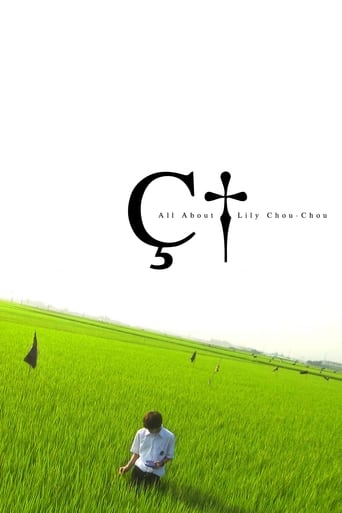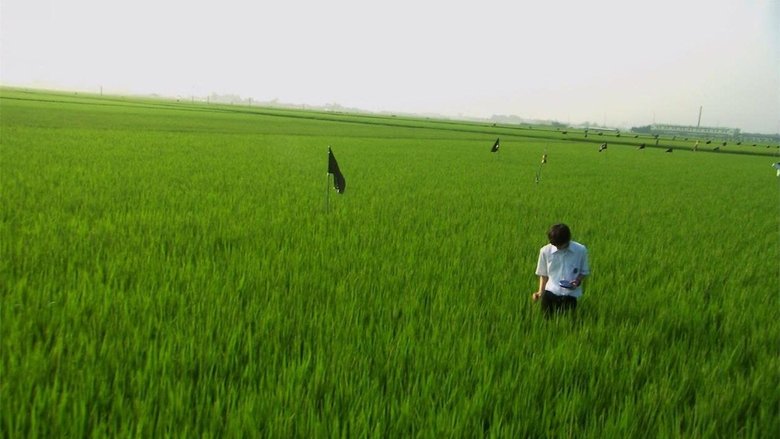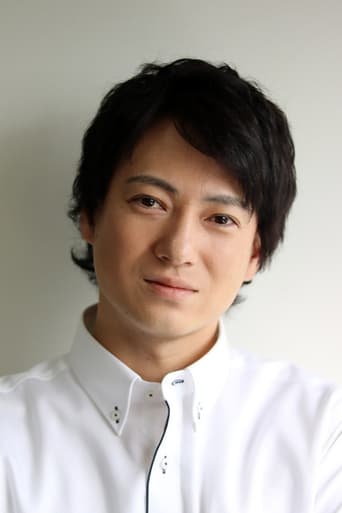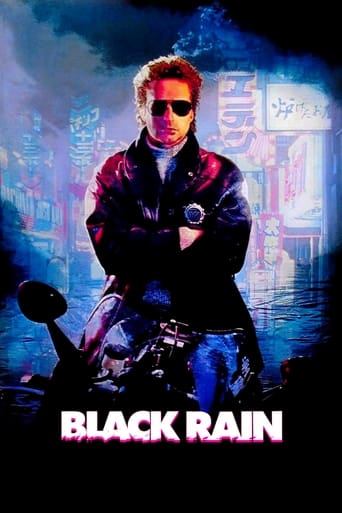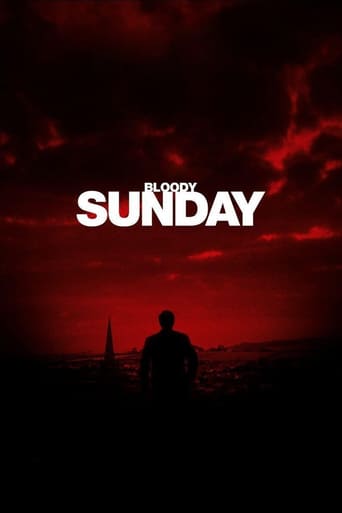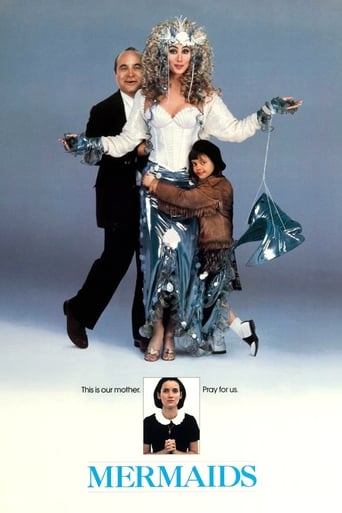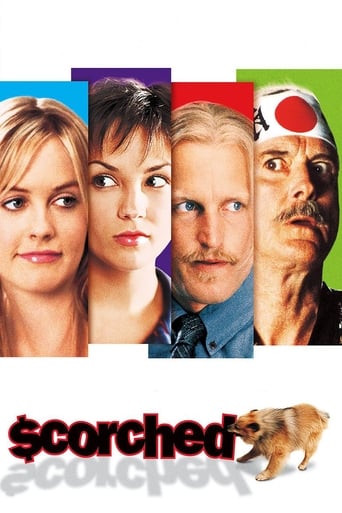All About Lily Chou-Chou (2002)
Charts the troubled teenage years of students Yūichi Hasumi and Shūsuke Hoshino, exploring the shifting and complex power dynamics of their relationship against the backdrop of Yūichi's love for the dreamy and abstract music of fictional pop star Lily Chou-Chou.
Watch Trailer
Cast


Similar titles
Reviews
Sick Product of a Sick System
Better Late Then Never
The story, direction, characters, and writing/dialogue is akin to taking a tranquilizer shot to the neck, but everything else was so well done.
This is one of the best movies I’ve seen in a very long time. You have to go and see this on the big screen.
strange, weird, maybe scary Strange and weird in the way how the director portrayed the movie. Every time when the screen show RELOAD and starts typing i feel like my head is spinning. Kind of brainwash by the movie. LOL.What scare me the most is I'm not used to that kind of bullying people.It's just never crossed my mind. They are just only 14 for the God sake. It's hurt me though to see how Hoshino can do all the bad thing towards his friend. What with the rape, make one of the girl to be prostitute, ask your friend to masturbate, to naked in the mud. Part of me really approved how the movie end (even though that's not the way to teach bad people).But to be frank, there's something about the film that make me glued to the screen. It's good movie but in a strange, weird and scary way.
All About Lily Chou-Chou is a movie that deals in teenaged alienation and admiration. Based around a fictional popstar named Lily Chou-Chou, the characters inhibit a sense of realism that makes the movie perfectly palatable to a bigger audience. However on a technical term, the movie brings together a number of creative methods. The emails (or messageboard) that are strewn throughout display a strong realisation of our admiration towards such media personas. It also explores the idolism we give out to people that influence and connect with us through an art form, which in this case is music.Some of the scenes can be confusing as there is not too much coherence throughout the movie in terms of a plot line however we see scenes of suburban torment, beautiful acres of green fields that are superbly shot and long shots of beaches and the sea. Also contained in the movie is two opposing sides of teenaged life; care-free fun and angst-filled isolation. The story of Kuno is a sad one, we see her raped and see her head shaven which ends up leading to her death. We also see classroom violence which may very well be exaggerated for melancholic effect but definitely has a profound influence on the viewer.A lot of things about this movie make it an interesting watch but my only concern with it is that maybe it's too long. Due to the 146 or so minute runtime, there are times where I felt parts could be cut down. The padding out the director has took with the movie does take away from the enjoyment of it and perhaps with a little more editing, I would find the movie more engrossing. However, the film does generate a good amount of interesting scenes and relatable characters which doesn't make the movie a chore to watch. Nothing here is challenging except for the overkilled duration. But with the right state of mind, one may enjoy the floating camera shots of urban and rural Japan.
The worst thing to happen to cinema in the late twentieth century was the idea of audience expectations and the feeble classifications of genre. For me, a film should be viewed as a blank page; we go into them with no prior knowledge - other than that which is suggested by the title - and trust the instincts of the filmmaker to present their ideas in an interesting and intelligent manner. Some viewers seem to think that it is the job of the film to work "for them"; to offer them entertainment and appeal to their own personal tastes and wishes. This, however, is wrong. The viewer should work for the film, working out the overall intention of the filmmaker and the characters as well as deciphering what each individual scene means and how it accumulates to create a full, coherent whole. You might think such an approach is somewhat silly, and you're entitled to that; however, to dismiss any film because it didn't work for you personally is juvenile; especially when you consider that a film is made for mass distribution and thus, eventually, find their own audience, rather than forcing themselves on an unsuspecting public.Yes, this is a somewhat difficult film - in the sense that it has an entirely fractured narrative that plays out in no discernible order - but to dismiss it for this very reason is to accept a cinema without risk or experimentation. However, if you're willing to work a little harder at piecing the whole thing together, then the film will reward; not necessarily in the sense of being the kind of film that will leave you all warm and fuzzy inside, but rather, in the way that it forces us to think about certain ideas expressed through the characters and the atmosphere that is created through the incredibly stylised and hyper-real methods that the director employs. For me it felt like the future of film-making; a bold combination of every great auteur that has ever stepped behind the camera, but with its own voice and its own personality. For example, the opening image of the film - of our central character suspended in time within a vast, green, ocean-like field of waving reeds - is reminiscent of a number of films, from Shindô's Onibaba (1964) to Tarkovsky's Andrei Rublev (1969) and Malick's Days of Heaven (1978), but combined with that almost Kieslowski-like use of music and the further hints to Godard presented by the use of on-screen inter-titles, which here reveal elements of character background in a way that is entirely fitting to the uncharacteristic world that the film creates.Despite these references, the film never feels like an exercise in imitation, with the director advancing on the influence of these particular filmmakers and creating his own world that seems to exist in a heightened state of almost dreamlike self-awareness. The way that the camera often floats above and around the characters - with those huge locations stretching out endlessly around them - seems to suggest the ideas of alienation and disconnection, whilst also presenting the more interesting idea of characters purposely removing themselves from everything superficial, until only the very essential, natural elements remain. For me, it is one of the few films that really pushes the use of low-grade digital video equipment in a way that enhanced the story; putting it on a par with Lars von Trier's The Idiots (1998), Harmony Korine's Julian Donkey Boy (1999) and Takashi Miike's Visitor Q (2001) as a film that uses the natural abstraction of digital footage to further establish the subjective worldview of the characters. The movement of the camera is constantly suggesting the illusion of freedom or the ability to escape that is contrasted brilliantly against the cramped, dimly lit locations and the use of an uninviting sepia tone to suggest further elements of an expressive visual style tied to the feelings of its characters.It is a film that feels alive with ideas and energy; painting this world of Japanese youth lost and confused as violence and degradation swells all around them. The themes of the film are admittedly bleak, and indeed, the film is certainly an overwhelming and exasperating experience that leaves us breathless and worn. Again, it's partly down to the fantastic visual approach that director Shunji Iwai brings to the film and the way that it complements the thoughts and feelings of the characters and the various obsessions and preoccupations that form the backbone to their world. Understandably for a film that focuses on teenagers the use of music is incredibly important. Here it is as much a character in the film as a tool to tie the scenes together; with the enigmatic persona of Lily casting a massive shadow over the film as she becomes this all encompassing symbol for freedom and expression. The characters talk about music as a life-force and how it comes to represent a kind of ether in which they are helplessly suspended, and in keeping with this notion, the film takes on these elements as well.People need to stop approaching films with a definite idea of what to expect. There are no rules to film-making. No guidelines and regulations that must be followed in order to get a viewer from point A to point B, nor should there be any attempt on the part of the filmmaker to make concessions for an audience unwilling to take an active role in the way the film should be viewed. A film like this requires a sense of collaboration with the audience to think about the presentation of the narrative and the ideas expressed therein; creating a mood and an atmosphere that is reminiscent of Antonioni in the way that the film seems to just drift along, ambient-like, until that staggering final; at which point we're left with not only an overwhelming train of thought, but with a certain heightened perception of the world that is really quite remarkable.
I can easily see this film as causing many viewers a lot of frustration as the facts and events are not always easy to follow but, personally, I found it to be wildly vivid and fantastically telling piece for which I felt a lot of personal empathy; the attitudes to school and education by the school children (who are the stars of the film) particularly. The soundtrack is often borrowed from Claude Debussy whom Lily Chou Chou (the popular music star by whom the star is obsessed) was heavily influenced by. There are sequences in this film I found to be completely hypnotic and I think that a good rule of thumb for whether you will enjoy it or not would be whether you are completely absorbed by the opening scenes in the field or whether you just wonder what the hell is going on.

